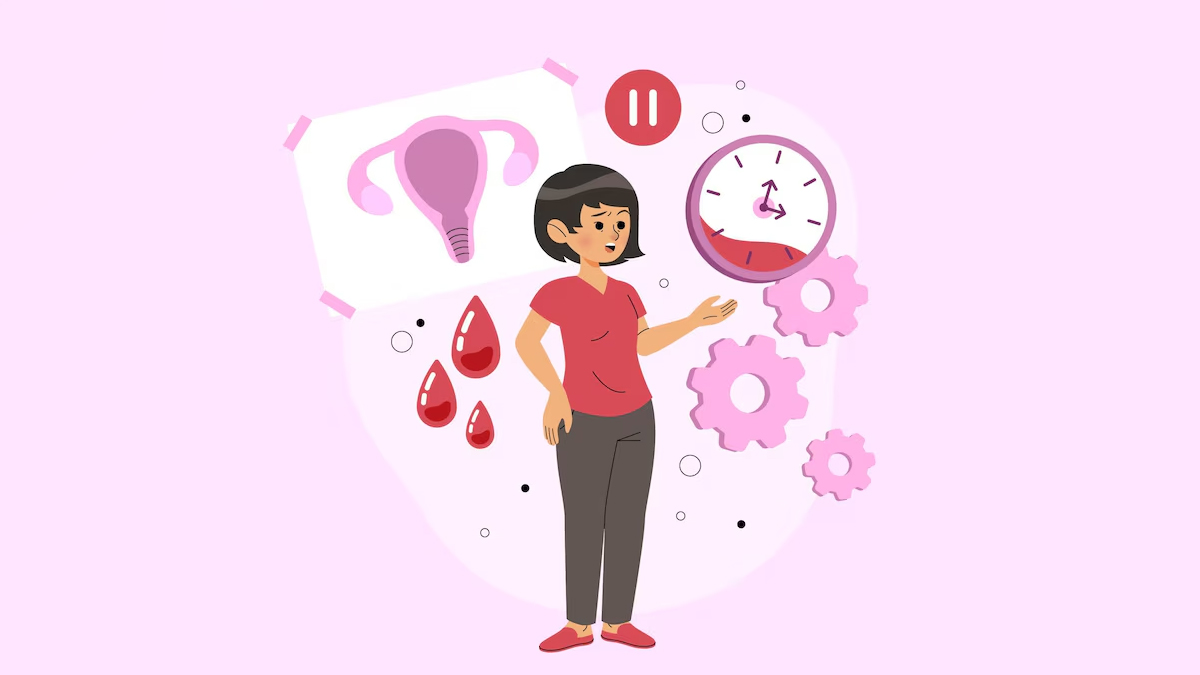End of Menopause Signals Expert Shares Positive Changes to Expect During The Post-Menopausal Period
Menopause marks a transformative phase in a woman’s life, signalling the end of reproductive years. Yet, confusion often surrounds how to recognise its conclusion and what changes follow. explains that menopause is confirmed only after 12 consecutive months without a menstrual cycle.
However, the journey involves a turbulent transitional phase called perimenopause, characterised by hormonal fluctuations and disruptive symptoms like hot flashes, mood swings, and sleep disturbances. Read ahead to explore the signals that menopause is ending and highlight the positive shifts women can anticipate afterwards.

So, how do you know when menopause is truly over? Dr Chandrasekaran identifies these key signals:
The definitive marker of menopause is the absence of menstrual cycles for a full year. Until this milestone, women remain in perimenopause.
Vasomotor symptoms like hot flashes and night sweats often peak during perimenopause. As estrogen levels stabilise post-menopause, their frequency and intensity diminish.
Hormonal swings during perimenopause can cause irritability, anxiety, or depression. Post-menopause, many women experience steadier moods and a renewed sense of emotional control.
Lower estrogen levels during perimenopause can thin vaginal tissues, increasing susceptibility to infections. Post-menopause, the body adapts to its “new normal,” reducing recurrence.
Hormonal chaos during perimenopause often leads to weight fluctuations. Post-menopause, metabolism stabilises, making it easier to manage weight through diet and exercise.
ALSO READ: What Are Uncomfortable Symptoms Of Menopause? Doctor Shares Management Tips
-1739430594592.jpg)
Contrary to popular belief, life after menopause isn’t all challenges—many women find newfound freedom and wellness. Dr Chandrasekaran highlights these positive shifts:
The end of hot flashes, night sweats, and sleep disturbances allows women to reclaim their daily routines. “Your overall well-being improves as the body adjusts to a stable hormonal baseline,” says Dr. Chandrasekaran.
With stabilised hormones, emotional volatility decreases. Women often report feeling calmer, more confident, and mentally resilient.
While vaginal dryness may persist, Dr Chandrasekaran emphasises that open communication with partners and healthcare providers can lead to solutions like lubricants or topical estrogen, improving comfort and libido.
Post-menopause eliminates the guesswork of irregular cycles. Women can focus on preventive care like bone density checks and heart health tailored to their needs.
Many women embrace this phase as an opportunity to prioritise their health, explore new hobbies, or strengthen relationships without the demands of reproductive concerns.
Dr. Chandrasekaran urges women to view menopause as a natural transition rather than a medical problem. “Your body reaches a new equilibrium post-menopause. The key is to adapt through lifestyle changes,” she advises. She recommends:
Menopause concludes with the welcome retreat of its most challenging symptoms, ushering in a phase of stability and self-discovery. While perimenopause can feel overwhelming, Dr. Chandrasekaran reassures, “Life does get better after menopause.” By understanding the signals of its end and adopting proactive health strategies, women can thrive in their post-menopausal years, enjoying renewed energy, emotional balance, and freedom. Embrace this chapter as a time to celebrate resilience and invest in long-term well-being












